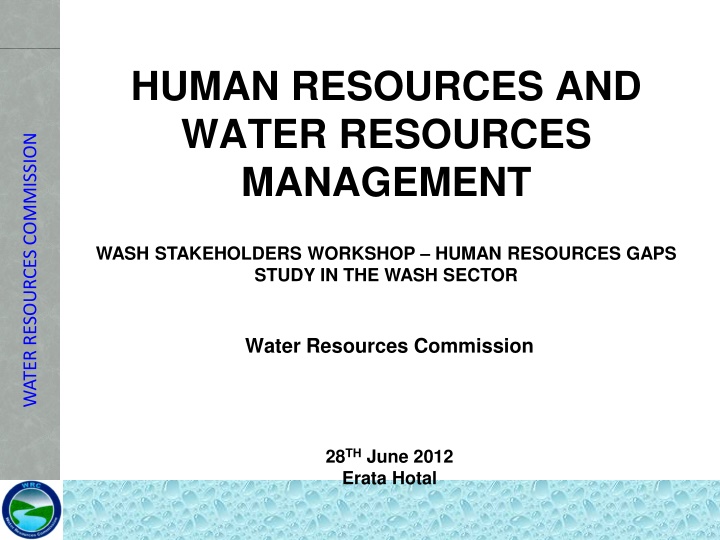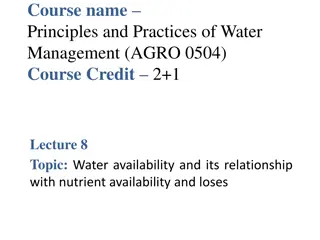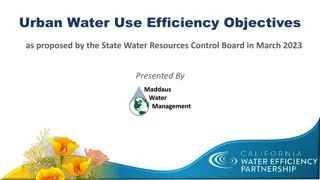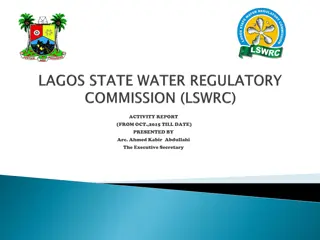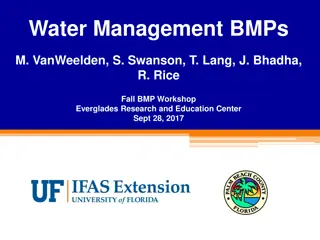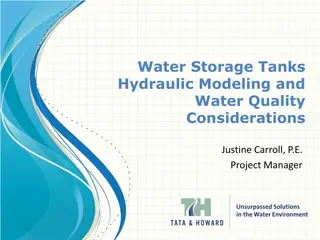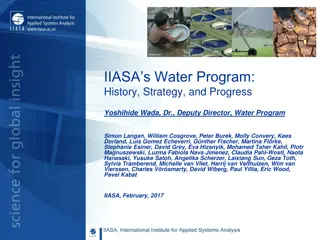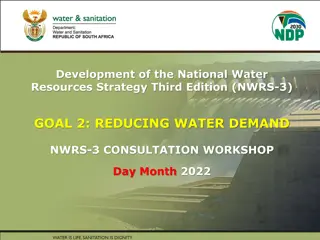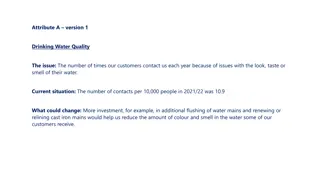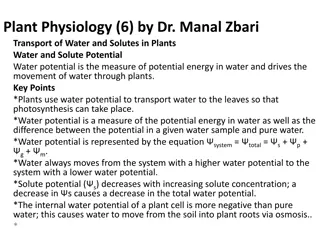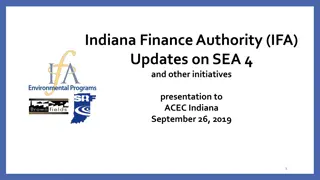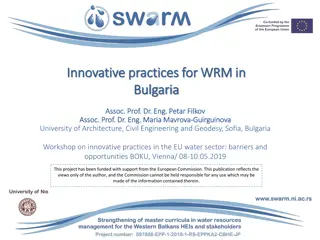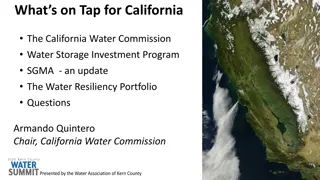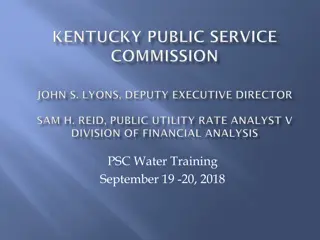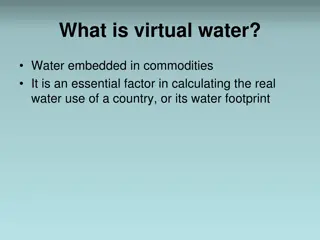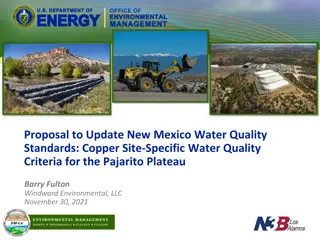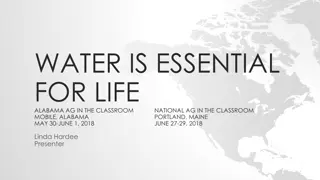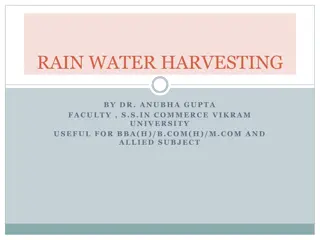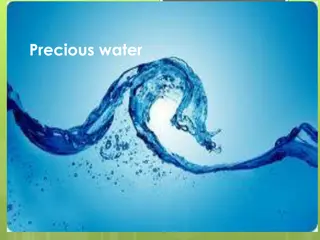Water Resources Commission Overview and Operations
This document provides an overview of the Water Resources Commission (WRC), focusing on training needs assessment objectives, staff strength, professional capacity, organizational structure, and decentralized operations. The WRC plays a key role in managing water resources, with a diverse team of professionals handling various technical positions and ensuring effective basin operations through decentralized offices.
Download Presentation

Please find below an Image/Link to download the presentation.
The content on the website is provided AS IS for your information and personal use only. It may not be sold, licensed, or shared on other websites without obtaining consent from the author.If you encounter any issues during the download, it is possible that the publisher has removed the file from their server.
You are allowed to download the files provided on this website for personal or commercial use, subject to the condition that they are used lawfully. All files are the property of their respective owners.
The content on the website is provided AS IS for your information and personal use only. It may not be sold, licensed, or shared on other websites without obtaining consent from the author.
E N D
Presentation Transcript
HUMAN RESOURCES AND WATER RESOURCES MANAGEMENT WATER RESOURCES COMMISSION WASH STAKEHOLDERS WORKSHOP HUMAN RESOURCES GAPS STUDY IN THE WASH SECTOR Water Resources Commission 28TH June 2012 Erata Hotal
Training Needs Assessment Objectives 1) General information about the staff member (position, functions, and education). 2) The general acquaintance with the objectives and work areas of the Water Resources Commission. 3) The general acquaintance with IT tools, and 4) The staff member s own priorities for training within a number of priority areas set by the Water Resources Commission. WATER RESOURCES COMMISSION
Staff Strength & Major Positions Total No. of staff (permanent) = 32 Senior staff Junior staff Total No. of staff (temporary) = 13 = 22 (11 men + 11 women) = 10 (7 men + 3 women) WATER RESOURCES COMMISSION Major technical positions comprise: Economist, Ecologist, Water Resources Engineer, Water Resources Lawyer, Water Quality Specialist, Basin Officers, Groundwater Specialist, Information Technology Specialist, Public Relations Officer, Accountant, Administrator
Professional Capacity The academic level of the water professionals must be considered relatively high. Out of 22 professionals a majority hold Masters or Ph.D. degrees. Most of the professional staff feel well acquainted with WRC basics such as the Water Policy, the legislation, the mandates of WRC itself and the IWRM concepts Other professional issues like water allocation, trans- boundary water resources management, participatory approaches, and gender mainstreaming need upgraded for some. Administrative skills such as project management, reporting and financial management skills are clearly low rated by some staff members. WATER RESOURCES COMMISSION
Structure of the WRC WRC Commissioners Executive Secretary Departments: Water Resources Planning Legal and Monitoring Environmental Quality Information and Education Administration and Finance WATER RESOURCES COMMISSION
Decentralised Operations Five basin offices Ankobra Densu White Volta (Bolgatanga) Pra (offin) Tano Each headed by a Basin Officer supported and by an Assistant Basin Officer Each basin has a board comprising representatives from the MMDAs in the basin, selected regulatory and research institutions, water user agencies, traditional authorities, Women and NGOs. (Tarkwa) (Koforidua) WATER RESOURCES COMMISSION (Kumasi) (Sunyani)
Filling the Gap More hands as each position/professional is only one. (10 more) Need to establish Inspectorate Unit (5 officers with Natural Resources Management background) Dam Safety Unit (4 officers with Civil / Structural / hydrology, geology background) Staff ranked highest theme for training as Gender Mainstreaming Conflict Resolution Team Building WATER RESOURCES COMMISSION
